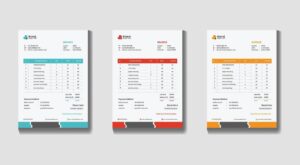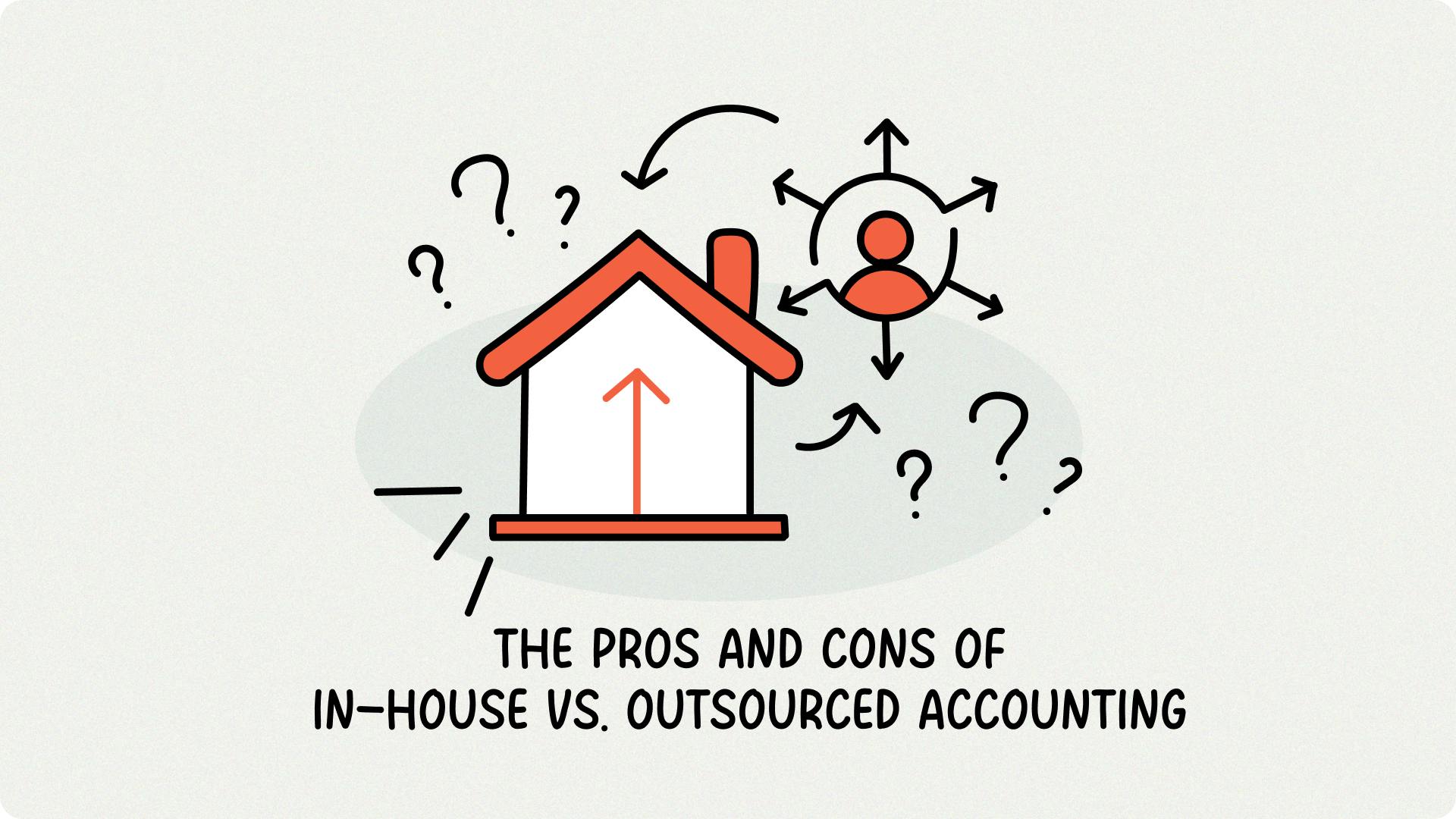If you’re running a small business, you probably started out as your own “Chief Everything Officer.” That includes being the lead, and only, member of your accounting department. Late nights with spreadsheets and a shoebox full of receipts are a rite of passage for many entrepreneurs.
But as your business grows, that system starts to break. The bookkeeping takes more and more of your time, tax questions become more complex, and you start to worry about what you might be missing. You’ve reached a financial crossroads: is it time to hire someone in-house, or should you outsource your accounting to an external firm?
This is a major decision, and there’s no single right answer. It’s about understanding your needs, your budget, and what you want your role in the business to be. Let’s break down the pros and cons of each path.
Table of Contents
- The In-House Route: Pros & Cons
- The Outsourced Path: Pros & Cons
- TL;DR Comparison: In-House vs. Outsourced
- Which Path is Right for You?
The In-House Route
This typically means hiring a part-time bookkeeper or a full-time staff accountant. This person is your employee, working within your company on a daily basis.
Pros of In-House Accounting:
- Immediate Access & Deep Company Knowledge: Your accountant is right there (physically or virtually) and is 100% dedicated to your business. They become deeply familiar with your operations, culture, and unique financial quirks. Need a report pulled instantly? Just ask.
- High Degree of Control: You set their daily priorities, manage their workload, and shape their role to fit your specific needs. As a dedicated resource, they become fully integrated into your team culture and processes. This close alignment means you can adjust tasks on the fly, provide immediate feedback, and ensure every hour they spend directly supports your business goals.
Cons of In-House Accounting:
- The Significant Cost: Professional accounting help requires careful budgeting. According to 2024 U.S. Bureau of Labor Statistics data, the median accountant salary reached $80,510. When you add other expenses like benefits, payroll taxes (which can add 20-30%), recruitment costs, and software, the true annual cost can easily exceed six figures. That said, small businesses needing basic services can find capable professionals at lower rates: the bottom 10% of earners made under $52,780, representing a more accessible entry point for simpler financial needs.
- Limited Expertise: You’re hiring one person. While they may be a great accountant, they can’t be an expert in everything. They might be fantastic at day-to-day bookkeeping but less experienced in high-level tax strategy or international sales tax.
- Risk and Dependency: What happens if your lone accountant gets sick, goes on vacation, or quits? Your financial operations can grind to a halt. Training a replacement takes significant time and money.
The Outsourced Path
Outsourcing means partnering with an external firm (like Fynlo!) that handles your accounting needs remotely. You pay a monthly fee for their services.
Pros of Outsourced Accounting:
- Cost-Effective and Scalable: Instead of a full-time salary, you pay a predictable monthly fee that is often a fraction of the cost of an in-house hire. As your business grows, you can easily scale your services up or down without going through a new hiring process.
- Access to a Team of Specialists: This is a key advantage. When you outsource, you’re not just getting one person. You’re gaining access to an entire team’s collective knowledge—bookkeepers, senior accountants, tax strategists, and software specialists—for one price. A 2024 Deloitte report on outsourcing highlighted that access to expertise is a primary driver for companies choosing to outsource.
- Continuity and Reliability: An outsourced firm has a team, so there’s no disruption if one person is away. They also invest in the latest technology and security, saving you the cost and headache of managing it yourself.
Cons of Outsourced Accounting:
- Less On-Site Presence: You can’t walk down the hall to ask a quick question. This requires a bit more structure in your communication (e.g., scheduled calls, emails).
- Response Time: While most firms are highly responsive, you may not get an instant answer like you would with an in-house employee. You are one of several clients they serve.
Finding the Right Fit: The partnership is crucial. You need to find a firm that understands your industry, communicates well, and feels like a genuine part of your team.
TL;DR Comparison: In-House vs. Outsourced
For a quick overview, here’s how the two options stack up against each other.
| Factor | In-House Accounting | Outsourced Accounting |
| Cost | High: Full-time salary + benefits + taxes + software (often $90,000+ total). | Flexible: Predictable monthly fee, often a fraction of a salary. Pay only for what you need. |
| Expertise | Limited: Expertise is confined to the knowledge of one or two individuals. | Broad: Access to a diverse team of specialists (tax, bookkeeping, strategy, etc.). |
| Scalability | Difficult: Scaling requires a lengthy and expensive hiring process. | Easy: Services can be scaled up or down quickly as your business needs change. |
| Control & Access | High: Direct, daily management and immediate on-site access. | Structured: Access is through scheduled calls and email. Less direct daily oversight. |
| Response Time | Immediate: on-demand support and instant adjustments. | Defined: typically within agreed SLA, often same or next business day, and prioritised by urgency. |
| Time Investment | High: Requires time for hiring, training, and ongoing management. | Low: The firm manages its own team and technology, freeing up your time. |
| Continuity | Risky: Operations can halt if your employee leaves or is unavailable. | Reliable: Service is uninterrupted by vacations or personnel changes due to team structure. |
| Best For | Businesses valuing oversight, data security, and stable finances | Businesses seeking cost savings, scalable solutions, and specialized expertise. |
Which Path is Right for You?
The truth is, the best choice depends on your stage of growth.
- If you’re a freelancer or solopreneur, a simple, outsourced bookkeeping plan is almost always the most logical choice.
- If you’re a growing small business, outsourcing provides a “sweet spot” of high-level expertise without the crippling cost of a full-time, senior-level hire.
- If your business becomes large and highly complex (e.g., 50+ employees, intricate operations), you might eventually consider an in-house financial controller, perhaps in a hybrid model where you still outsource specialized tasks like tax strategy.
Ultimately, the goal is to get timely, accurate financial information that empowers you to make smart decisions, without draining your time or your bank account. The right solution shouldn’t just do your books; it should give you peace of mind and the freedom to focus on leading your business.
Whether you’re considering bringing someone in-house or tapping into outsourced expertise, Fynlo’s advisors can help you weigh the options and find the best fit for your budget and growth plans. Schedule a free consultation today, and let us guide you toward the solution that frees you to focus on what you do best.
You may also like these articles:







